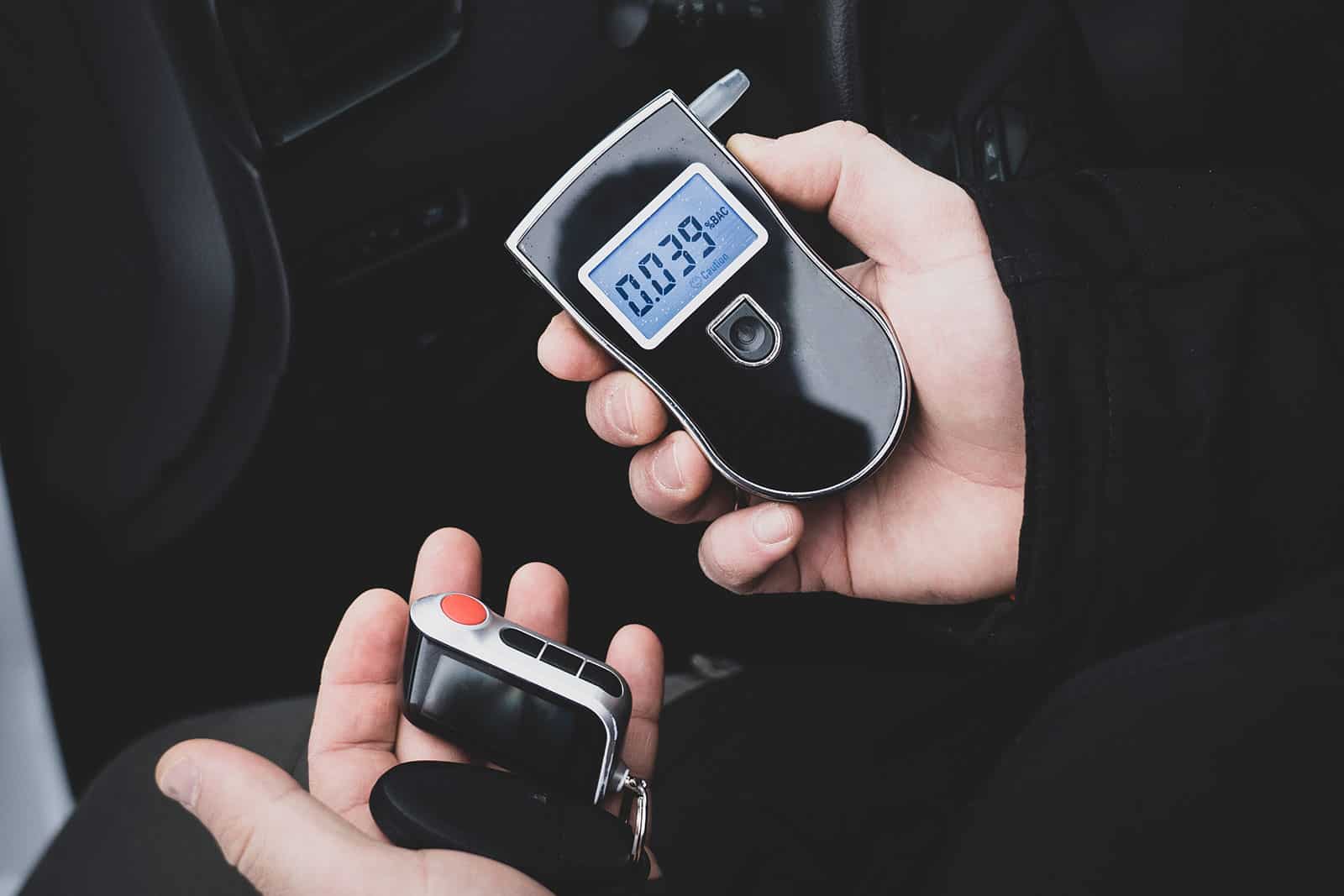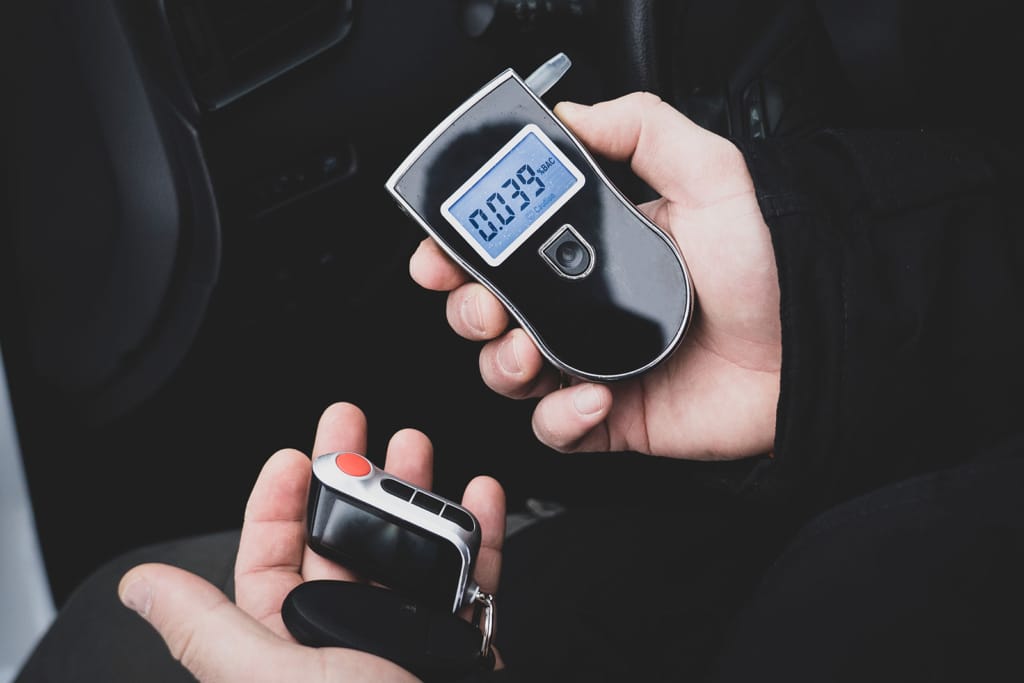Drug and alcohol evaluations are assessments conducted by trained professionals to determine whether an individual has substance abuse or addiction problems.
These assessments determine the severity of the issue and potential risks associated with addiction problems. Depending on the assessment results, professionals recommend appropriate treatment and intervention strategies.

The court often orders drug and alcohol evaluations for individuals convicted of DUI, MIP, arrest for drug possession, disorderly conduct, or public intoxication. If the court mandates the assessment, then it’s a must.
In this guide, we’ll walk you through everything you need to know about drug and alcohol evaluation. You’ll learn what to expect, how to prepare, and treatment options if needed.
Table of Contents
- 1 Understanding Drug & Alcohol Evaluations
- 2 Drug & Alcohol Evaluations in New Jersey
- 3 Process and Procedures Involved in a Drug & Alcohol Evaluation
- 4 Who Conducts Drug and Alcohol Evaluations?
- 5 Required Documentation and Information for Drug and Alcohol Evaluation
- 6 Finding Approved Evaluation Providers in New Jersey
- 7 To Sum Up
Understanding Drug & Alcohol Evaluations
Drugs and alcohol have severe impacts on one’s brain, body, and overall health. They also have long-lasting effects on one’s relationships with family and friends. To help individuals overcome their addiction problems, state courts often order drug and alcohol evaluations.
These evaluations involve comprehensive assessments conducted by psychiatrists, social workers, and trained professionals to determine the presence and severity of substance abuse problems.
A drug and alcohol evaluation typically includes gathering background information in a one-on-one interview. They also involve screening tools and thorough evaluation to refer the individual to the appropriate treatment option.
Objectives and Goals of Drug & Alcohol Evaluations
The primary objective of drug and alcohol evaluations is to identify the severity of substance abuse or alcohol problems.
Then, based on the problem’s severity, experts recommend a personalized treatment plan for each individual to help them overcome their addiction problems.
Here are some key objectives of drug and alcohol evaluations:
- Determine the existence and severity of substance use problems.
- Assess the impact of drugs and alcohol on one’s personal life and well-being.
- Identify the individual’s readiness and motivation for change.
- Create tailored treatment and intervention plans for each individual based on his needs and goals.
- Monitor the individual’s progress throughout the treatment journey.
Benefits of Drug and Alcohol Evaluations
Drug and alcohol evaluations offer various benefits for people struggling with substance abuse problems.
Here are the benefits of drug and alcohol evaluations:
- Helps with the early detection of substance abuse issues, which is critical to avoiding the development of more serious addiction problems.
- Improves one’s overall health and well-being as addressing substance abuse problems has significant mental, physical, and emotional benefits.
- Helps individuals get personalized treatment plans based on their goals, needs, and motivations.
- Guarantees recovery from addiction and improves interpersonal relationships.
- Have legal benefits as they’re often ordered by the court or required for legal purposes.
Drug & Alcohol Evaluations in New Jersey
In New Jersey, alongside other states, the court might mandate a drug and alcohol evaluation to determine the presence of substance addiction.
The court orders this assessment for various reasons, such as:
- To identify if the person has addiction problems
- See how much substance addiction is affecting the individual.
- Determine the presence of co-occurring physical and mental disorders.
- Recommend a treatment plan.
After completing the drug and alcohol evaluation, the court may order any of the following procedures:
- Random urine analysis for alcohol and drugs
- DUI alcohol or drug use risk reduction program
- Treatment options such as outpatient counseling, intensive outpatient or partial hospitalization, residential rehab, or medication-assisted treatment
- Substance use disorder educational classes
Process and Procedures Involved in a Drug & Alcohol Evaluation
The drug and alcohol evaluation process typically consists of three stages: interview, screening, and recommendation.
1. The Interview
The first step of the evaluation process involves an online or in-person meeting between the individual and an addiction specialist.
The medical professional often begins the interview with some questions about the person’s drug and alcohol use.
This helps the evaluator determine the severity of the addiction problem so that he can recommend a tailored treatment plan.
The meeting might also involve a part in which the evaluator explains the significant impact of alcohol and drug use on one’s personal and professional life.
Interview questions often include the following:
- What substance do you use, and how often?
- How long have you been using?
- When was your last drink?
- What were the circumstances surrounding your last drinking incident?
- Have you tried to quit before, and if you did, what happened?
- Do you have a family history of substance abuse?
2. Screening and Assessment
The specific components of a drug or alcohol assessment vary depending on the individual and the service provider. Nevertheless, you can anticipate encountering two commonly employed assessment tools:
Diagnostic Interview Schedule-IV (DIS-IV)
This tool is characterized by an in-depth questionnaire designed to detect any diagnoses listed in the Diagnostic and Statistical Manual of Mental Disorders (DSM-IV).
Addiction Severity Index (ASI)
This tool involves an interview assessing seven areas identified by the National Institute on Alcohol Abuse and Alcoholism (NIAAA). These areas include:
- Drug use
- Alcohol use
- Legal status
- Employment and support
- Medical status
- Family and social status
- Psychiatric status
This part of the assessment enables the evaluator to ask questions not only about a person’s substance use in the last month but the effects of addiction on their entire life.
It’s worth noting that the screening and assessment process can be done online. Participants must register through the agency’s platform or website if they wish to complete an online assessment.
Moreover, individuals are usually assessed by multiple health professionals. This ensures that the assessment results are accurate so professionals can design a tailored treatment plan for every individual.
In addition to the commonly used screening tools, doctors use their professional judgment and knowledge to determine patients’ status.
They might also ask to review past medical records from previous doctors or interview friends and family members to see the bigger picture.
3. Recommendation
If the assessment results show substance or alcohol use, doctors recommend treatment based on the individual’s status. Personalized treatment plans may include any of the following:
- Outpatient treatment program
- Inpatient treatment program
- Group or individual meeting sessions
- Substance abuse education programs
- Random alcohol and drug tests
We understand that going through a drug and alcohol evaluation can be stressful. However, the process will allow you to fully understand your circumstances to get the best treatment option.
It’s crucial to be honest and transparent with evaluators and accept their recommendations to overcome your problems. That way, you can move on with a healthy and happy life.
Who Conducts Drug and Alcohol Evaluations?
Drug and alcohol evaluations are typically conducted by certified professionals specializing in substance abuse and addiction. These professionals may include:
- Social workers: These are social workers who are trained to provide therapy and counseling services. They help addicts and families by providing consistent support throughout assessment and treatment.
- Psychologists: Those professionals usually hold a degree in psychology and are trained to evaluate and treat various mental health issues, including substance abuse.
- Psychiatrists: Medical doctors specializing in diagnosing, treating, and preventing mental health issues like substance abuse. They’re also qualified to write prescriptions as part of the treatment plan.
- Substance abuse counselors: They’re mental health professionals who help individuals identify the issues that contribute to substance abuse.
- Physicians: Sometimes primary care doctors participate in drug and alcohol evaluations to decide if the individual needs further investigation.
It’s still possible for other health professionals to conduct drug and alcohol assessments. Nurses and physician assistants who have enough experience often participate in these evaluations.
Moreover, if the court mandates the evaluation, individuals will most likely be evaluated by multiple practitioners to ensure the investigation is thorough.
Required Documentation and Information for Drug and Alcohol Evaluation
If a judge orders a drug and alcohol assessment, individuals must submit the required documents to the court. These documents usually include the following:
- Arrest report
- A record from your NEEDS assessment, in case you’ve been in a DUI program before.
- Documentation of any previous criminal arrests or offenses.
- A documented driving history from the Department of Motor Vehicles or the Department of Driver Services.
Finding Approved Evaluation Providers in New Jersey
Choosing a reputable alcohol and drug evaluation provider is crucial to receive a suitable treatment plan. We’ve compiled a list of trusted and accredited drug and alcohol assessment service providers.
- MD Home Detox – New Jersey (LegitScript certified)
- New Pathway Counseling Services – Bayonne
- New Pathway Counseling Services – Jersey City
- New Pathway Counseling Services – Paramus
- New Pathway Counseling Services – Pine Brook
- Journey Into Wellness (court-approved treatment)
- Another Door Opens
- Special Care New Vision – Jefferson Stratford Hospital (LegitScript certified)
Every service provider has different rehab settings, services, and payment options. So reach out to them if you want extra information about the fees, duration of the program, and schedules.
To Sum Up
So there you have it, the on-drug and alcohol evaluation. We hope you understand the whole process, its benefits, and its objectives.
Remember that being honest and cooperative with evaluators is crucial, as they’ll help you find the best treatment plan for you or your loved ones.
If you approach the assessment with the right mindset, you’ll be well on your way to overcoming addiction and getting your life back on track.
In case you have further questions, don’t hesitate to contact us at NJ Addiction and we’re happy to help you on this journey.


